CSotD: Original adaptations
Skip to comments
In case you hadn’t noticed, when I feature a syndicated cartoon here, I add the name of the syndicate with it. For instance, I would label this one Barney & Clyde (Counterpoint). A few months ago, I’d have said “Barney & Clyde (WPWG)” but the Washington Post Writers Group has recently ended its syndication of comic strips.
Obviously.
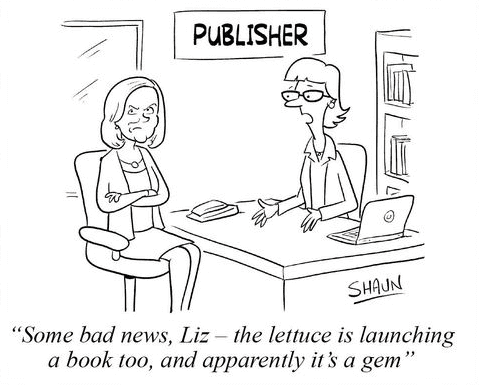
I also try to avoid political gags that require a lot of international awareness, but this Liz Truss piece by Shaun McCallig cracked me up and I think a fair number of readers will remember that her time as Prime Minister was timed by a screenshot of a head of lettuce which wilted less quickly than she did.
Now she’s got a book out, and McCallig isn’t far off on how well it’s been selling.

For such a simple artistic style, he did a really fine caricature. No need to use her last name in the caption.
Juxtaposition of the Day

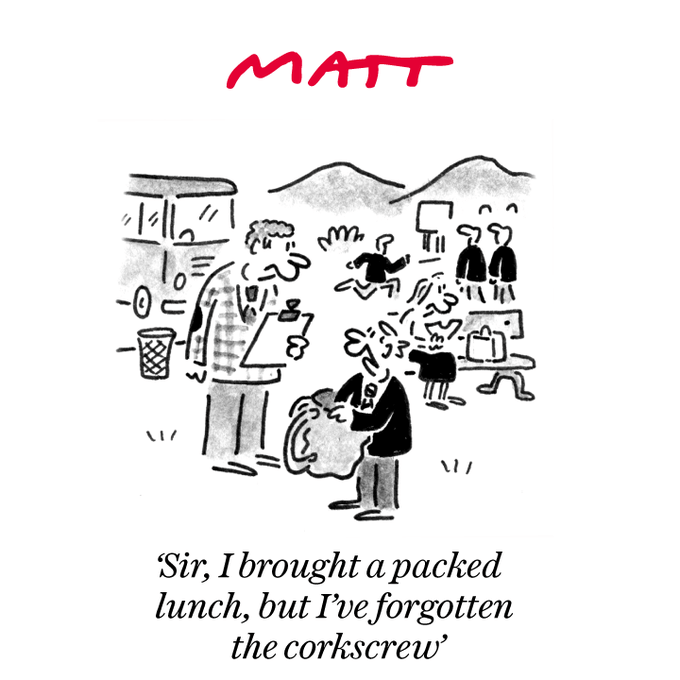
And as long as we’re on the topic of foreign politics, I often run into a couple of cartoons on what is clearly a current events item but that sends me off to Google News. In this case, it’s a World Health Organization report revealing that kids in Great Britain have the highest level of drinking among the 44 countries studied.

The article in the Guardian goes on to quote an expert as saying letting youngsters drink moderately does not teach them proper consumption but, rather, leads to greater problems with alcohol later in life, though I do wonder if the survey included having a sip of wine at Communion or possibly a very small toast at major family events.
I also note that the Guardian article includes this update:

I don’t know whether this indicates that WHO assumed the Irish were sots, or that they assumed that the Six Counties aren’t part of Britain, but I know which interpretation I prefer.

This Candorville (KFS) is political and touches on the idea that there isn’t much difference between Big Brother and Big Tech. I continue to believe in Haystack Security, a theory based on the idea that the more they collect, the less they can process and that we’re all needles in a grand haystack.
To put it another way, it means assuming nothing is private and you might as well carry on with a certain degree of discretion but not twist yourself into a pretzel trying to remain invisible.
Besides, we seem to be living in a world where, if you sit on the grass making statements someone doesn’t like, the police can beat you, tase you and haul you away, the antidote being to get yourself elected president so you can order hits on your political opponents without facing any legal repercussions.
Given that, I’m not getting too bent out of shape over the chances that someone will find out I paid for a pizza with my debit card last night.
Clyde is right that AI threatens journalism, but only the cheap, tawdry trivial kind that doesn’t much matter.
Not the important kind that nobody reads.

First Dog on the Moon makes the case for reading and manages to avoid both the over-ecstatic glurge about books taking you away and the school-marm attitude that makes reading sound good for you, like castor oil.
Mostly, he talks about it the way I would, right down to the fact that I can’t do audio books because I can’t maintain focus long enough for books. One of the reasons I listen to NPR in the car is that their reports are bite-sized and if I lose the train of thought, there’ll be another train along in a few more minutes.
I also share his propensity for reading at night and falling asleep, which is an issue right now because I’m reading War and Peace for the seventh or eighth time, but a different translation, which makes it a different book.
But it is still quite a substantial novel and, while I’m really enjoying it, I won’t be reading anything else until maybe June because I don’t like to have more than one book going at a time.
And, as it happens, it’s not my longest recent undertaking, since I read the entire d’Artagnan cycle, which was great fun but makes War and Peace look like a pamphlet.
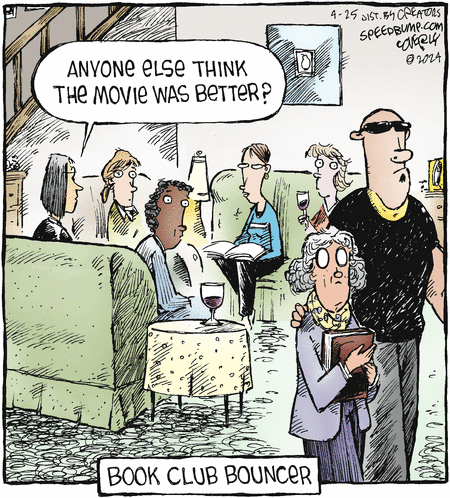
Speed Bump (Creators) seems like an invitation for people to suggest exceptions, and I’m willing to play.
The movie version of the Three Musketeers starring Gene Kelly as d’Artagnan is great fun, though it leaves out some wonderful and important stuff from the book. The others have left me wondering if any of them have even read the book and remind me of when Beaver Cleaver tried to get away with doing a book report on it by watching the Ritz Brothers version on TV.
There has never been a good movie made from War and Peace, though the BBC’s 1970s serialized version with Anthony Hopkins is such a good introduction that my then-wife, who had read the book, warned me to stop watching it part way through because of all the spoilers.
Anything else is either too compacted or, in the case of Sergey Bondarchuk’s massive theatrical version, so faithful to the book that you might as well read it instead. And unless you speak Russian, you will anyway, because it’s subtitled, not dubbed.
The exception to all this is The Unbearable Lightness of Being, which was an engrossing, important novel and a brilliant movie, but the two had only a tangential connection to each other. It’s possible to prefer the movie, but it’s equally possible to prefer the book, with no conflict.
The first movie I saw based on a book I’d read was Swiss Family Robinson, which Disney might as well have made with the Ritz Brothers for all it had to do with the novel. I was one pissed-off 10-year-old, but I guess it prepared me for what he did to Mary Poppins.

And Deflocked (AMS) continues our discussion of adaptations, because it gave me an earworm, but not the original.
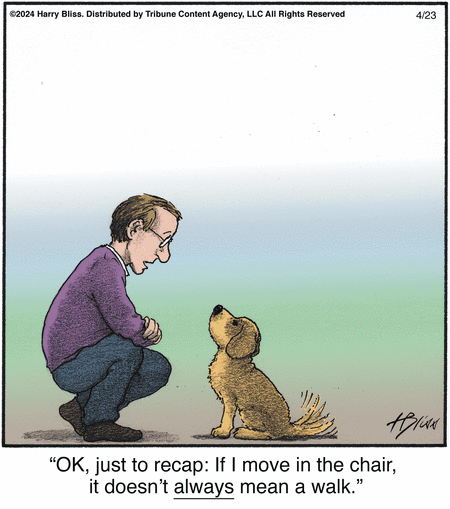
And now, having shifted in my chair like Harry Bliss (AMS), I will do as my mistress demands and leave you here to enjoy said adapted earworm:
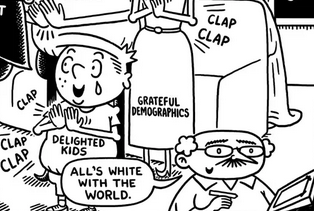
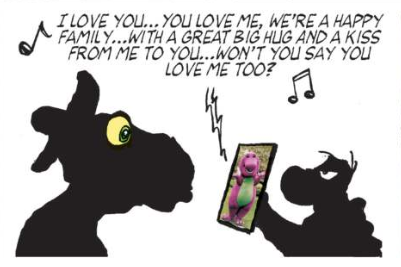
Comments 7
Comments are closed.